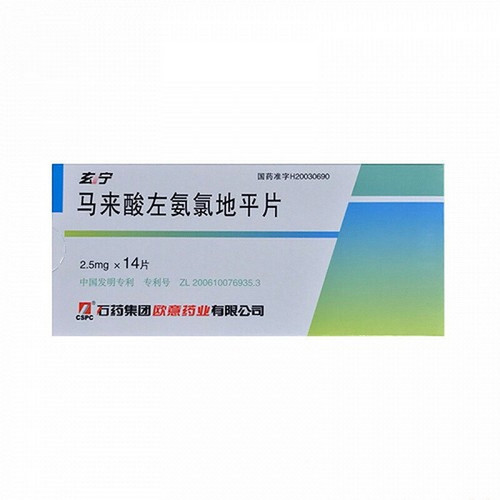Product Overview
[Drug Name]
Generic Name: Ramipril Tablets
Trade Name: RuiSuTan Ramipril Tablets 5mg*14 Tablets
Pinyin Code: RuiSuTan LeiMiPuLiPian 5mg*14 Tablets
[Main Ingredient]
Ramipril
[Properties]
White or off-white tablets
[Indications/Main Functions]
Hypertension. Congestive heart failure. Symptoms of congestive heart failure that develop within the first few days after an acute myocardial infarction
[Specifications]
5mg*14 tablets
[Dosage and Administration]
For hypertension, start with 2.5mg once daily. Based on the patient's response, double the dose after 2-3 weeks if necessary. The typical maintenance dose is 2.5-5mg, with a maximum of 10mg/day. For patients with renal insufficiency (creatinine clearance 50-20ml/min), the initial dose is usually 1.25mg once daily, with a maximum of 5mg/day. The initial dose for congestive heart failure is 1.25 mg once daily. Depending on the patient's response, the dose may be doubled after 1-2 weeks. If a daily dose of 2.5 mg or higher is required, it can be taken in two divided doses. The maximum dose is 10 mg/day. The initial dose after a myocardial infarction is 2.5 mg twice daily. If the patient cannot tolerate this initial dose, 1.25 mg twice daily for two days may be used. The maximum dose is 10 mg/day.
[Adverse Reactions]
Dizziness with difficulty concentrating, fatigue, weakness, and liver and kidney dysfunction may occur. Skin redness with burning, itching, urticaria, other skin or mucous membrane rashes, conjunctivitis, and sometimes severe hair loss may occur. Raynaud's phenomenon may occur suddenly or worsen. Angioedema may rarely occur. Patients may develop an irritating, dry cough. Gastrointestinal adverse reactions include thirst, stomatitis, constipation, diarrhea, nausea and vomiting, stomach pain, and upper abdominal discomfort. Blood counts may change.
[Contraindications]
Patients with a history of angioedema, bilateral renal artery stenosis or unilateral renal artery stenosis, reduced left ventricular blood input or output, hypotension, or unstable circulatory status, and pregnant or lactating women.
[Drug Interactions]
When used concomitantly with antidiabetic medications (such as insulin and sulfonylurea derivatives), caution should be exercised regarding the potential for excessive hypoglycemia. Serum potassium levels may increase when used concomitantly with potassium salts, potassium-sparing diuretics, or heparin. Avoid concomitant use with potassium salts. ACE inhibitors can reduce lithium excretion and may increase serum lithium levels. Concomitant use with other anti-inflammatory and analgesic medications may weaken the antihypertensive effect of this medication and may lead to acute renal failure. This drug may enhance the effects of alcohol.
[Precautions]
Patients with a history of angioedema, bilateral renal artery stenosis or unilateral renal artery stenosis, patients with decreased left ventricular blood flow or output, hypotension, or unstable circulatory status, and pregnant or lactating women.
[Pediatric Use]
Unknown
[Elderly Use]
Unknown
[Overdose]
Unknown
[Pharmacology and Toxicology]
Unknown








